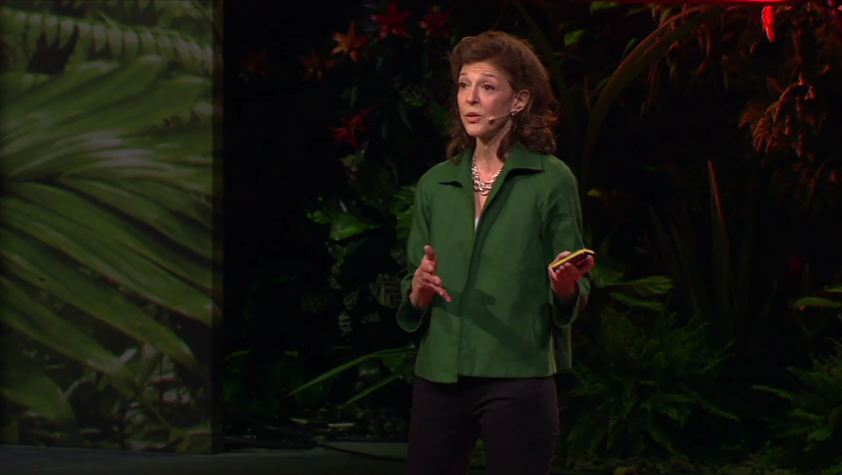And we all kind of hate to admit it.
我們都不愿承認。
You know, we kind of wish we were better husbands, better wives, smarter, more powerful, taller, richer -- the list goes on.
我們希望自己能成為更好的丈夫,更好的妻子,變得更聰明,更有權力,更高,更富有,諸如此類。
Lying is an attempt to bridge that gap, to connect our wishes and our fantasies about who we wish we were, how we wish we could be, with what we're really like.
欺騙是人們試圖在現實與愿望之間架起橋梁,把我們理想中的自己與理想中的生活,種種心愿和幻想與現實中的自己聯系起來。
And boy are we willing to fill in those gaps in our lives with lies.
天啊,難道我們要用謊言來填補現實與幻想之間的差距嗎。
On a given day, studies show that you may be lied to anywhere from 10 to 200 times.
研究表明在每一天,你被欺騙的次數,從10次到200次不等。
Now granted, many of those are white lies.
的確,這其中有許多是善意的謊言。
But in another study, it showed that strangers lied three times within the first 10 minutes of meeting each other.
而另一項研究顯示陌生人見面后的前十分鐘內說謊的次數為三次。

Now when we first hear this data, we recoil.
頭一次聽到這個數據,我們不免心寒。
We can't believe how prevalent lying is. We're essentially against lying.
我們不敢相信人們說謊竟如此頻繁。我們本質上與說謊對立。
But if you look more closely, the plot actually thickens.
但如果你細看,情況可沒那么簡單。
We lie more to strangers than we lie to coworkers. Extroverts lie more than introverts.
我們對陌生人說謊的次數比對同事說謊的次數要多。外向的人比內向的人說謊次數多。
Men lie eight times more about themselves than they do other people.
男性關于自己的謊言比關于別人的謊言多出了八倍。
Women lie more to protect other people. If you're an average married couple, you're going to lie to your spouse in one out of every 10 interactions.
女性說謊往往是為了保護他人,如果你們是一對普通夫妻,那么你對自己的配偶每交流10次就有一次在說謊。
Now, you may think that's bad. If you're unmarried, that number drops to three.
你可能覺得這很不好。如果你未婚,那么每交流3次就有一次在說謊。











